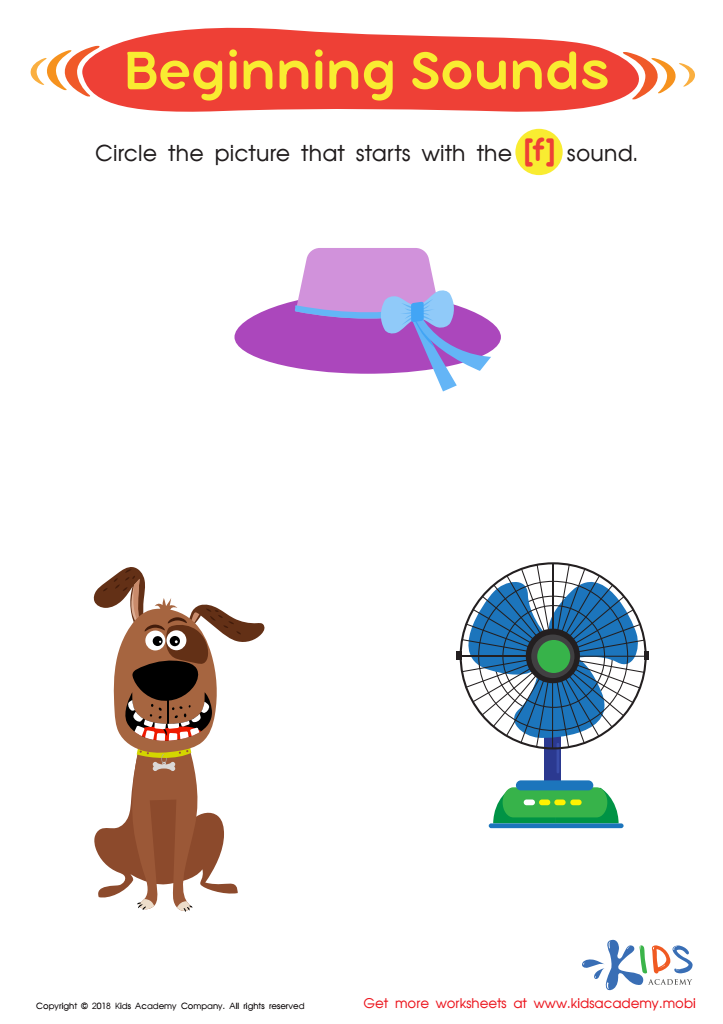Beginning Sounds worksheets activities for 4-Year-Olds
2 filtered results
-
From - To


Phonics and Word Recognition: Assessment 1 ELA Worksheet


Beginning Sounds Assessment Printable
Beginning Sounds worksheets activities are an invaluable resource for young learners embarking on their literacy journey. These activities are designed specifically to hone a child's ability to recognize and associate sounds with their corresponding letters, a foundational skill in reading and writing. Engaging with Beginning Sounds worksheets offers a myriad of benefits that significantly contribute to a child's early academic success and enthusiasm for learning.
Firstly, Beginning Sounds worksheets activities foster phonemic awareness, an essential component of reading fluency. By focusing on the initial sounds of words, children learn to distinguish between different phonemes, laying the groundwork for decoding words and understanding their meanings. This early exposure to phonics through playful and structured worksheets helps demystify the process of reading, making it more accessible and less intimidating for young learners.
Moreover, these activities enhance a child's auditory discrimination skills. As children engage with Beginning Sounds worksheets, they become more attuned to the subtle differences between sounds, an ability that is crucial not only for literacy but for effective communication as well. This heightened auditory sensitivity allows for a more profound understanding and appreciation of language, paving the way for advanced literacy skills.
Additionally, Beginning Sounds worksheets activities are designed to be interactive and fun, capturing the imagination of young learners. Through a variety of formats such as matching games, coloring activities, and cut-and-paste exercises, children are encouraged to explore sounds in a hands-on and engaging manner. This playful approach to learning ensures that children remain motivated and excited about their educational journey, fostering a lifelong love for reading and writing.
In conclusion, Beginning Sounds worksheets activities are a cornerstone of early literacy education. They not only equip children with the necessary skills for reading and writing but also instill a sense of confidence and curiosity about language. By incorporating these activities into a child's learning routine, parents and educators can provide a solid foundation for academic success and a passion for learning that will last a lifetime.

 Assign to the classroom
Assign to the classroom












